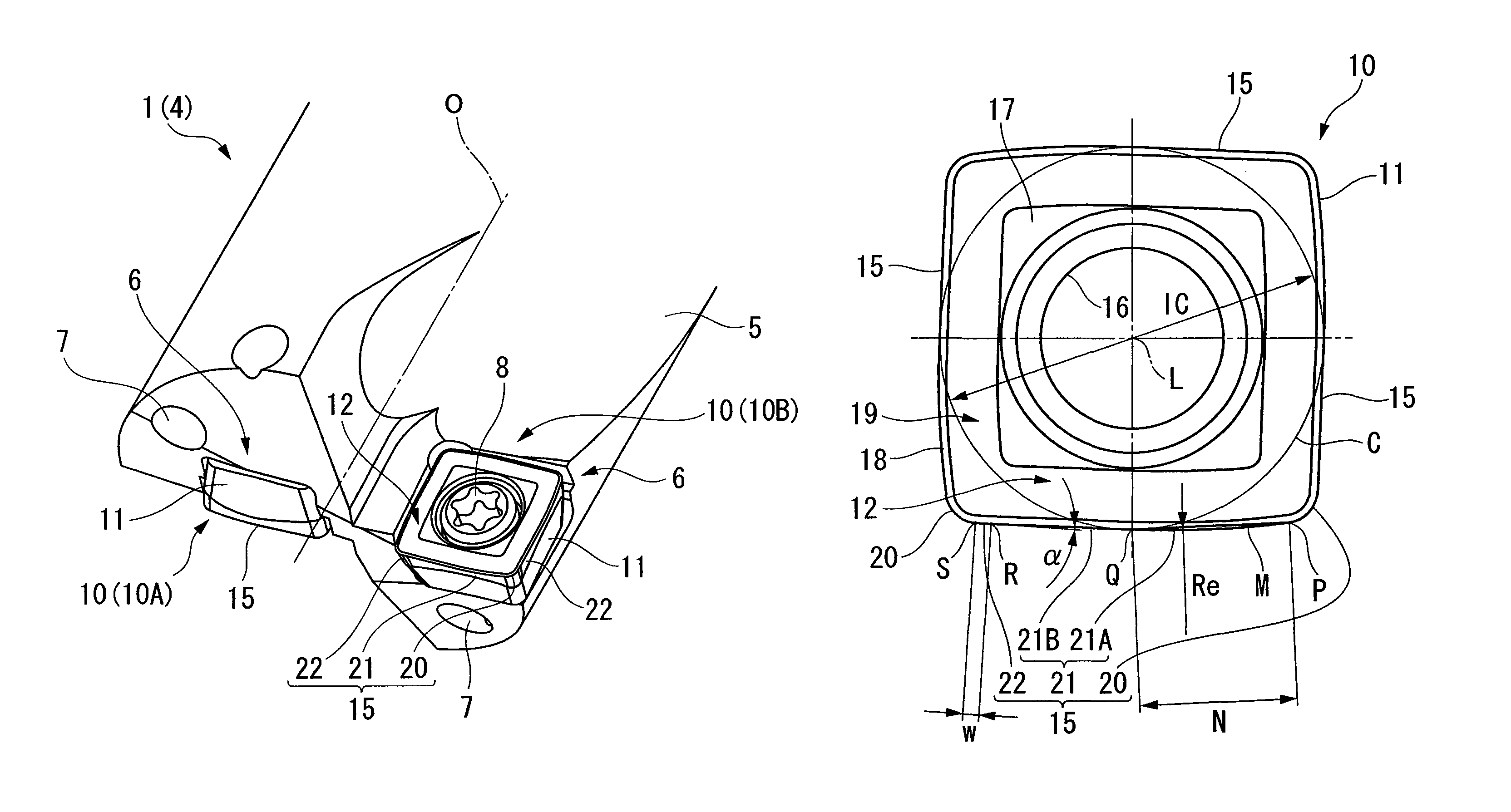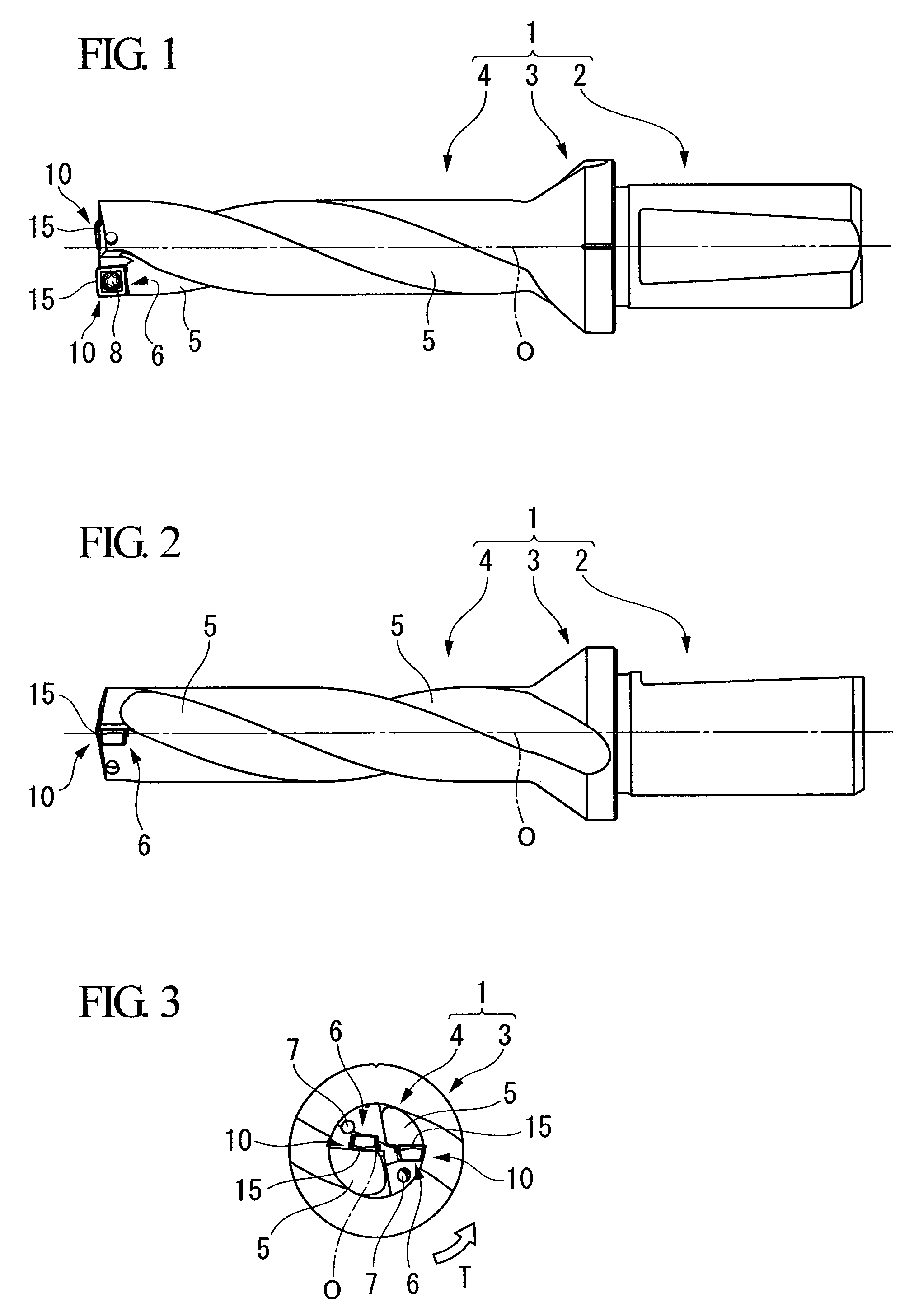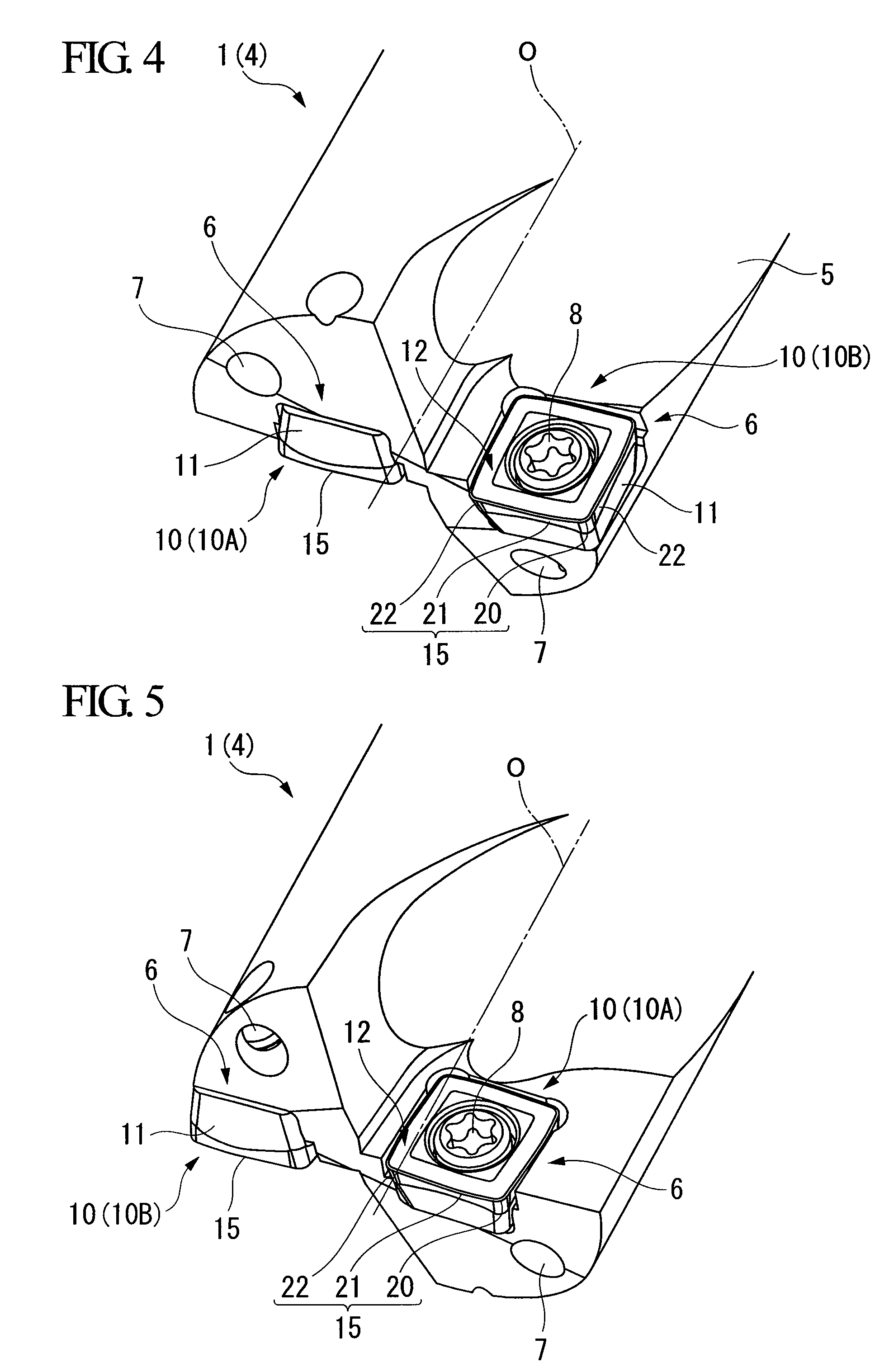Insert for drill and indexable insert drill
a drill and insert drill technology, applied in the direction of cutting inserts, twist drills, manufacturing tools, etc., can solve the problems of easy loss of cutting edge, deterioration of surface quality of inner wall surface of machining holes, and degradation of surface quality, etc., to prolong the life of inserts, improve the quality of inserts, and improve the effect of machining quality
- Summary
- Abstract
- Description
- Claims
- Application Information
AI Technical Summary
Benefits of technology
Problems solved by technology
Method used
Image
Examples
Embodiment Construction
[0030]FIGS. 1 to 9 show one embodiment of the invention. Among these drawings, FIGS. 1 to 5 show an indexable insert drill of this embodiment, and FIGS. 6A, 6B, 7 and 8 show an insert of this embodiment. In the indexable insert drill of this embodiment, a drill body 1 is formed from steel or the like and is formed in a substantially cylindrical shape having an axis O as its center. A rear end portion (a right portion in FIGS. 1 and 2) of the drill body is used as a shank portion 2, and a tip portion (a left portion in FIGS. 1 and 2) of the drill body is used as a cutting portion 4 via a flange 3. The shank portion 2 is gripped by a spindle of a machine tool, is rotated in a drill rotational direction T around the axis O (a counterclockwise direction as shown in FIG. 3 as seen from the tip in the direction of the axis O in this embodiment), and is used for drilling a work material.
[0031]In the cutting portion 4, a pair of chip discharge grooves 5, which is twisted backward in the dri...
PUM
| Property | Measurement | Unit |
|---|---|---|
| length | aaaaa | aaaaa |
| angle | aaaaa | aaaaa |
| intersection angle | aaaaa | aaaaa |
Abstract
Description
Claims
Application Information
 Login to View More
Login to View More - R&D
- Intellectual Property
- Life Sciences
- Materials
- Tech Scout
- Unparalleled Data Quality
- Higher Quality Content
- 60% Fewer Hallucinations
Browse by: Latest US Patents, China's latest patents, Technical Efficacy Thesaurus, Application Domain, Technology Topic, Popular Technical Reports.
© 2025 PatSnap. All rights reserved.Legal|Privacy policy|Modern Slavery Act Transparency Statement|Sitemap|About US| Contact US: help@patsnap.com



